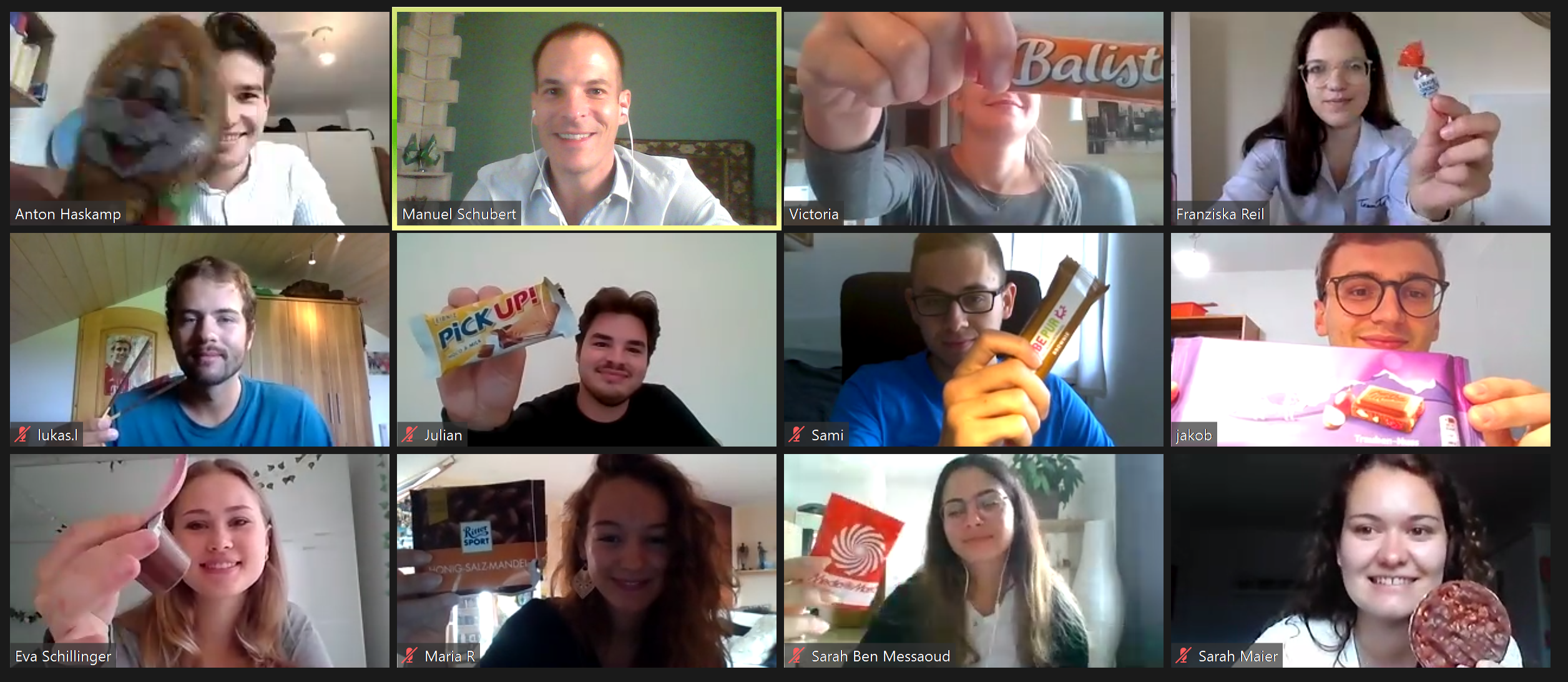Behavioral Economics and the Seven Deadly Sins (Part 2)

Second day of the 7th seminar on “Behavioral Economics and the Seven Deadly Sins” at Passau University. Today, we focused on moral balancing, overconfidence, decision making under risk, procrastination, and trust. To learn more about our own biases and preferences, we conducted a series of online experiments (the screenshot shows us during an incentive-compatible “marshmallow experiment”). For those who are interested in today’s topics, have a look at the full syllabus below.
- Sachdeva, S., Iliev, R., and D. L. Medin (2009), Sinning Saints and Saintly Sinners: The Paradox of Moral Self-Regulation, Psychological Science, Vol. 20, pp. 523-528.
- Camerer, C. (2003). Behavioral Game Theory. Experiments on Strategic Interaction, Princeton: Princeton University Press, pp. 134-138.
- Camerer, C., and D. Lovallo (1999), Overconfidence and Excess Entry: An Experimental Approach, American Economic Review, Vol. 89, No. 1, pp. 306-318.
- Ariely, D., and G. Loewenstein (2006), The Heat of the Moment: The Effect of Sexual Arousal on Sexual Decision Making, Journal of Behavioral Decision Making, Vol. 19, pp. 87–98.
- Ariely, D., and K. Wertenbroch (2002), Procrastination, Deadlines, and Performance: Self-Control by Precommitment, Psychological Science, Vol. 13, pp. 219-224.
- Frank, B., Haucap, J., and A. Herr (2014), Social Drinking versus Administering Alcohol, Economic Inquiry, Vol. 52, No. 3, pp. 1245–1247.
- Camerer, C. (2003), Behavioral Game Theory. Experiments in Strategic Interaction, pp. 83-86.